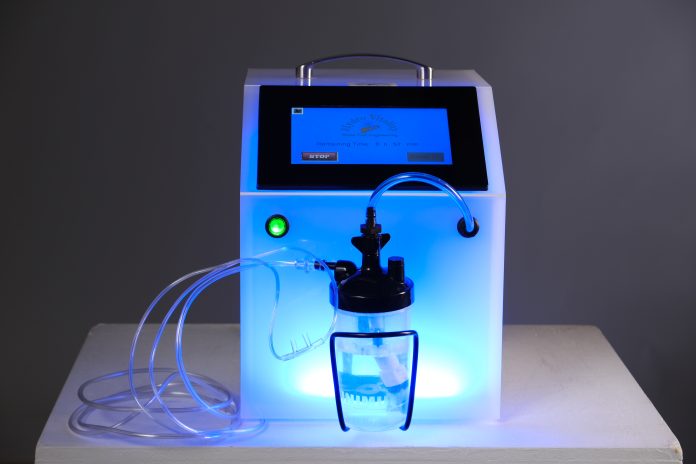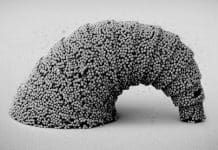H2 has a rich history dating back to its discovery in the 18th century. Research on its biological safety lagged until a 2007 study revealed its antioxidant effects, particularly its ability to neutralise harmful hydroxyl radicals. Alexander Nenov discusses H2’s potential as a tool to support overall wellbeing
Oxidative and subsequent cellular stress happens in two main ways: i) when the mitochondria are not functioning optimally, and production of highly reactive oxygen and nitrogen- containing molecules (ROS/RNS) is increased, and ii) when immune cells produce large amounts of ROS/RNS defending our bodies from infection, for example. These reactive oxygen/ nitrogen species can damage cell structures and inactivate essential protein functions, which contribute to the ageing process and the pathophysiological progression of disease. Due to their high reactivity, ROS/RNS are generally tightly controlled by an array of antioxidant proteins and peptides. While conventional antioxidants, such as vitamin C, may counteract many of the oxidative effects of ROS/RNS in the short term, they can accumulate in the body if taken in large doses or for extended periods, which can lead to adverse effects, including digestive distress.
A brief history of molecular hydrogen (H2)
Molecular hydrogen (H2) is unlike many larger molecules; it is a non-toxic, extremely small, and stable gas molecule that can penetrate all structures of the body, and one that is gaining popularity as a general wellness supplement and therapeutic. However, before we delve into the details of how H2 can support vitality and wellbeing, let’s first examine the history behind its safety and clinical use.
Since its discovery by Henry Cavendish in the mid-18th century (1766), H2 has been shown to be well tolerated as a biological gas, first in animals and then in humans. Although early research into H2 is sparse, with only a few interesting reports attesting to its biological safety, in the 1940s, a combination of hydrogen and oxygen (H2 96% and O2 4%) gases was used to prevent decompression sickness. This combination enabled deep-sea divers to travel to depths of ~500 meters, making ocean exploration safer and allowing for longer, more ambitious missions without the severe physiological risks previously associated with such depths.
Even though this discovery was revolutionary, demonstrating that hydrogen has protective biological effects, research into H2 as a supportive supplement subsided. It would be another few decades before the mechanisms behind H2’s activity were elucidated, with a study that demonstrated H2 supplementation protected deoxyribonucleic acid (DNA) from oxidative damage. Even after such a discovery, research into medical hydrogen again lapsed and was not fully revived until 2007, when researchers at the Department of Biochemistry and Cell Biology, Nippon Medical School, Japan, reported a direct antioxidant effect of H2. This groundbreaking study demonstrated that hydrogen selectively neutralised the highly reactive hydroxyl radical, a molecule that has the potential to cause significant cellular damage due to its ability to react with cellular proteins, structures, and membranes. Since 2007, there has been renewed interest in the effects of H2 as a therapeutic gas, and research into this promising area of medicine is now developing rapidly. There are now over 3,000 academic articles that demonstrate the protective effects of hydrogen in plants, animals, and humans.
Numerous clinical studies are underway, investigating the potential benefits of H2 in various areas, including cardiovascular health, neuroprotection, metabolic balance, and recovery from exercise-induced fatigue. While much of this research is ongoing, the growing body of evidence suggests that hydrogen may offer a safe and versatile tool for supporting overall wellbeing.
So how does it work?
Although H2 is a relatively stable molecule, cutting-edge computer analysis, known as in silico modelling, has suggested that in the presence of iron, the bond between the hydrogen atoms is weakened. This weakening allows a hydrogen radical to be formed, an entity that can directly reduce (or neutralise) such harmful and abundant reactive oxygen species as the hydroxyl radical.
In addition to the direct and selective antioxidant activity of H2, scientific and clinical studies have shown that this gas upregulates our own antioxidant defence system by enhancing the activity and expression of antioxidant proteins such as glutathione. This accessory factor can have a beneficial impact when we are feeling unwell or run down because when oxidative stress is better controlled, the body and its cells can focus on restoring balance and healing rather than fighting to restore homeostasis.
Another unique advantage of hydrogen is its ability to reach areas of the body that many conventional antioxidants cannot. Because of its tiny size and relative unreactivity, hydrogen can cross cell membranes, pass into the cell nucleus, and even reach the mitochondria – the energy centres of our cells where much of oxidative stress originates. This makes H2 particularly effective at addressing stress at its source rather than just managing symptoms.
Beyond the antioxidant properties of H2, research also suggests that hydrogen may have anti-inflammatory effects, help regulate cellular metabolism, and support healthy ageing, which are topics we will cover in upcoming months as part of our commitment to making cutting-edge hydrogen science accessible to everyone.
About Water Fuel Engineering
Water Fuel Engineering’s award- winning, research-backed, and user- friendly oxyhydrogen therapy devices are designed for home use and trusted by hundreds of clients in 15 countries across three continents.
Disclaimer
The information presented here is for educational purposes only and is not intended as a substitute for professional medical advice, diagnosis, or treatment. Always consult your physician or other qualified healthcare providers with any questions you may have regarding a medical condition or treatment. Never disregard professional medical advice or delay in seeking it because of something you have read in this article.

This work is licensed under Creative Commons Attribution-NonCommercial-NoDerivatives 4.0 International.











